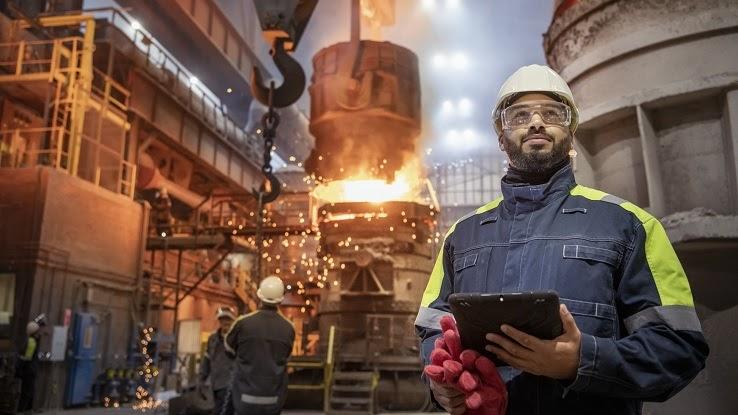Minnesota State Board of Continuing Education

Are you currently employed or searching for a job? If so, you need to be familiar with your state labor board. Even if you're retired, your state labor board is a valuable resource. While labor boards are most well known for their involvement in helping employees suing employers over unpaid wages, these organizations offer other essential resources. In fact, even employers can gain some benefits from using labor boards. And, in many states, labor boards oversee initiatives to help employers abide by laws and find great candidates for open jobs. Here's everything you need to know about what state labor boards can do for you.
What Is a Labor Board?
Labor boards oversee labor in a given jurisdiction by distributing updates about new laws; providing information to all parties involved in the employment process; and advocating for employee rights. When a problem arises, both business owners and employees often receive plenty of opinions from family and friends with good intentions. However, a state labor board website is a perfect source for getting up-to-date information relevant to your particular state of employment or labor issue.

State-specific information is extremely important because each state has different laws. For example, the federal minimum wage is significantly lower than the minimum wage in many states and cities across the country. State labor boards can also address employment issues that are unique to the state. When natural disasters or high incidences of sickness are impacting a specific area, state labor boards are the best source of local resources to help.
The U.S. Department of Labor (DOL) handles labor-related issues on a federal level. State labor boards work underneath the DOL. The DOL protects the interests of the employed, the retired, and those seeking employment. The organization oversees the administration of federal labor laws, and it suggests new labor standards based on market trends.

State labor boards oversee the administration of labor laws at the state level. The Department works to ensure that those seeking jobs have a fair chance at finding one. For example, the DOL verifies that anti-discrimination laws are followed. Employees' rights to fair compensation in a safe work environment are also prioritized by the DOL. For those who have stopped working, this department ensures that retirees receive the benefits they were promised.
What Protections and Services do Labor Boards Provide?
State labor boards provide resources to keep employees safe on the job. They also inform employees of their rights and help retirees receive their benefits. When workers have problems, they can use the state labor board to get information, file a complaint, or get advice for free. Many state labor boards have online job boards that allow employers of all sizes to post jobs. Since these job posts are monitored by the labor board, they are usually compliant with equal opportunity laws and the other regulations that govern job advertisements.

A worker who believes that he or she is not being compensated fairly can file a complaint with the local labor board. There have been many high profile cases protecting the rights of employees who are not properly compensated. Sometimes an employer simply does not pay employees the wages they are due. Rather than going all the way to the DOL, a local labor board is usually the best recourse for such an offense. The same scenarios that negate overtime standards in one state may not apply in another. Similarly, employees are afforded more rights than independent contractors. No matter how complicated the situation, labor boards can help answer questions like:
- Can a salaried employee earn overtime hours?
- What is the difference between an employee and an independent contractor?
- Does the fact that an employee earns tips excuse the employer from paying minimum wage?
As mentioned, the answers vary depending on where a person lives, so state labor boards can be an even better resource than national agencies.
Moreover, state labor boards also work alongside Occupational Safety and Health Administration (OSHA) to ensure that all employees are able to work in safe conditions. Many states have divisions of their labor boards that work specifically to protect the safety of workers in unique industries. For example, mining presents unique hazards, and state labor boards often address what mining companies are obligated to do to keep employees safe.
Benefits for Employers:
Although labor boards are usually the resource that people use to sue their employers, they are also beneficial to employers. Each state labor board provides both employees and employers with the information they need to abide by the laws and work, or offer work, safely. Employers can find up-to-date posters with all of the information that each place of business is required to display for employees. There are many businesses that prey upon unsuspecting business owners, soliciting them to pay hefty prices for these posters that are provided free by state labor boards.
What Is the National Labor Relations Board?
The National Labor Relations Board (NLRB) is a labor board, but it should not be confused with state labor boards. The NLRB protects workers' rights pertaining to forming, joining, and bargaining with a union. As a federal agency, the NLRB has the authority to enforce orders. Like other labor boards, the NLRB works to protect the rights of employees. Employees can file complaints with the NLRB, and the NLRB website is an excellent source of information about collective bargaining and worker's rights to unionize.

At times, the NLRB works alongside state labor boards to represent or protect employees. Some states are considered right to work states. In these states, employees have the right to work, regardless of whether they choose to participate in a union or not.
State labor boards are the local branch of federal efforts to protect the rights of all employees. Visit your local labor board website to get acquainted with the resources available in your area. After all, it's better to know your rights before you need help protecting them.
Source: https://www.reference.com/business-finance/labor-board-c44b9fff6ecd7935?utm_content=params%3Ao%3D740005%26ad%3DdirN%26qo%3DserpIndex&ueid=ef64c778-fa93-4ba6-9dc1-ef149f4ad7e5
0 Response to "Minnesota State Board of Continuing Education"
Post a Comment